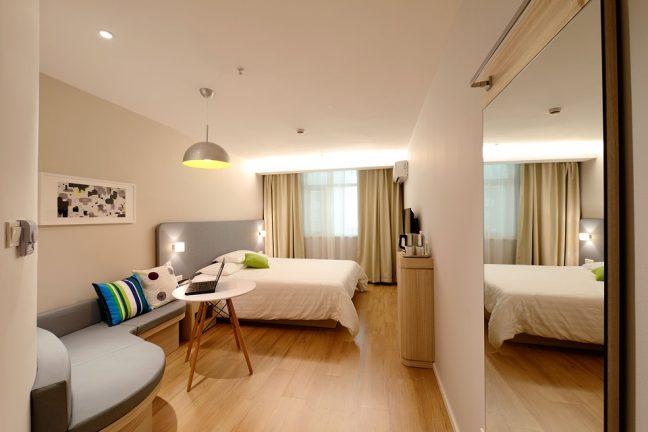A new report found Airbnb usage in Madison spiked by 335 percent during University of Wisconsin commencement last spring.
Airbnb is a home-sharing business founded in 2008 that allows home, condo and apartment owners to rent out their spare rooms or full spaces to visitors. As use of Airbnb becomes more prominent, some tourists opt for home sharing instead of staying in hotels or motels, changing the market and bringing the issues of zoning and taxation regulations to the forefront.
Airbnb’s Midwest Home Sharing for Major Events Report released last month showed this spike is due to the tens of thousands of families and friends traveling from across the country to watch their students graduate, according to the report.
The drastic increase goes along with some of the other top cities in the Midwest like Indianapolis, Detroit and Omaha, which all had increases of more than 700 percent during large-scale events in each city.
In Madison, Airbnb is becoming popular especially during surges like the spring graduation ceremony, Ben Breit, a public affairs spokesperson for the Midwest region of Airbnb, said.
Breit said half of the rentals in Madison are full places, but the other half are just extra bedrooms being rented out to visitors.
Hart Posen, an associate professor of management and human resources in the UW School of Business, said he thinks home-sharing services like Airbnb are going to stay in the market, but they have faced criticism, especially from some hotels.
Home sharing cuts into hotel businesses, and may hotels complain they don’t face the same regulatory regimes and tax systems.
The City of Madison defines a home-share location as “tourist rooming house” which is a building or a portion of a building, outside of hotels, motels, bed-and-breakfasts or hostels, that offer sleeping accommodations for pay.
There are certain regulations for those looking into home sharing a room or a house, some of which include a required license from Public Health of Madison and Dane County, no more than 30 days of rental if the operator does not live at the location and a registry available on-site for inspection.
Homeowners are often against Airbnb because it causes apartment prices in an area rise because rooms are essentially turned into hotel rooms, Posen said.
Breit said Airbnb tries to advise hosts to be cognizant of the short-term rental laws in each area.
Posen said most of the home-sharing businesses like Airbnb and, along with ride-sharing businesses like Über, are increasingly agreeing to local regulations. He said there are more issues are institutional issues like zoning laws and tax collection.
“Everyone is fighting over what the regulations will look like,” Posen said. “No one is expecting home sharing to go away. It won’t. It’s here to stay.”
Proposed bill could remove local 30 day rental limit on Airbnb
But Breit said the market for Airbnbs is likely to grow. He said as awareness of the platform grows, the use will probably grow as well, further changing the way visitors find places to stay.
“As more and more people recognize perhaps the economic opportunity presented by hosting on the platform, it should grow as well,” Breit said.
He said with large events like commencement, the innovation of the platform shines because it provides more spaces for people to stay during busy times throughout an area.
And Breit said hosts are able to earn a new revenue stream while visitors have the opportunity to get out of the busy downtown hotel districts and possibly save money in the process.
“It allows you to live like a local, experience neighborhoods that are outside the traditional hotel districts,” Breit said.














